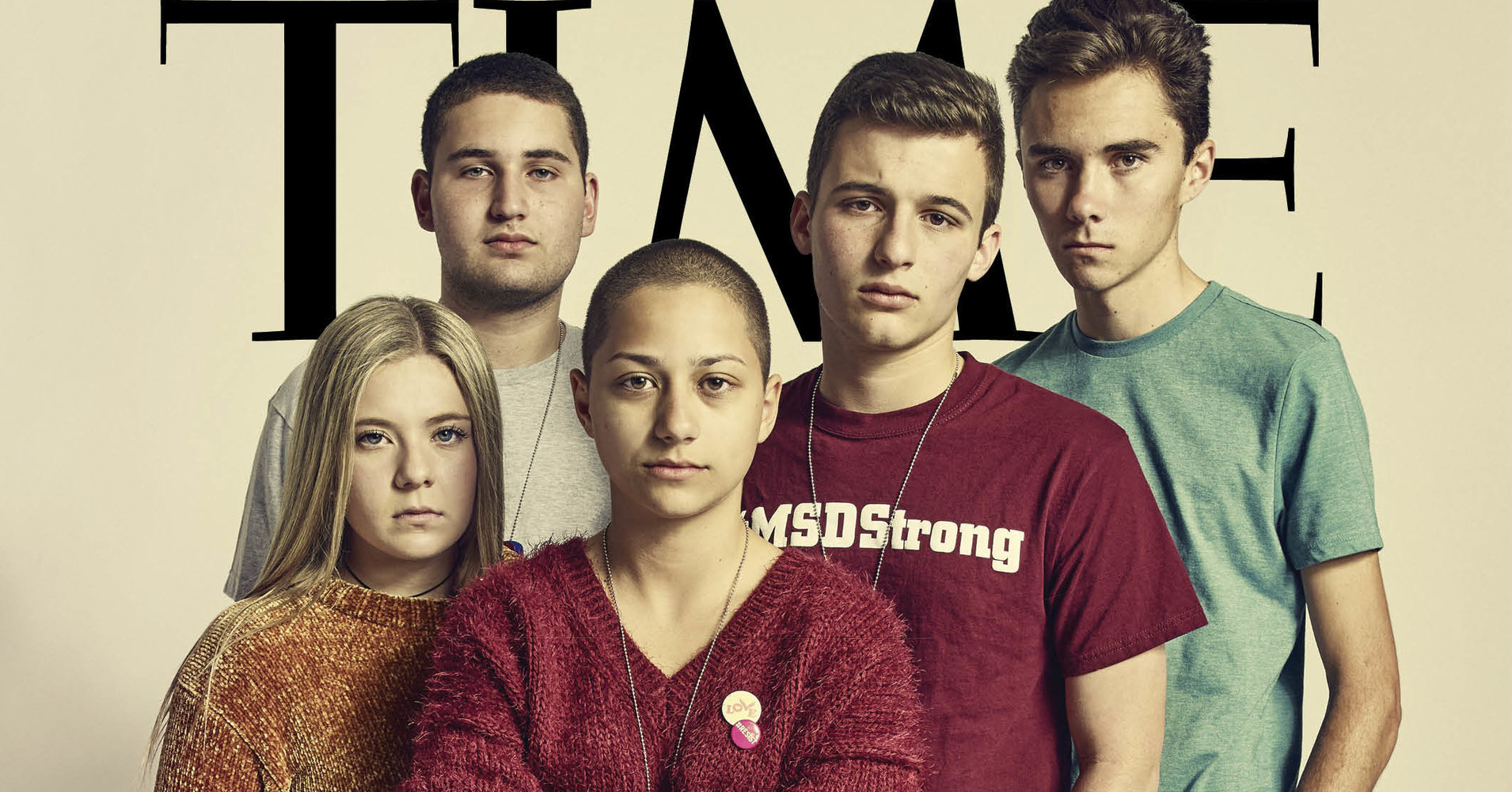Our personal weekly selection about journalism and innovation. Stay up to date by subscribing to our Newsletter or by following our Telegram channel, and join the conversation on Facebook and Twitter.
Edited by Marco Nurra
Pleased to announce that Craig Newmark has donated $250K to the International Journalism Festival. “Trustworthy journalism is the immune system of democracy, so we, as a society, must engage in a global dialogue to ensure that journalism continues to be strong, independent, and credible,” said Craig. “At a time when trust in the news is at a real low, the International Journalism Festival provides all citizens with vital public discussion on the media’s role in democratic society, and how to gain and retain trust.”
🔔 Craig Newmark will be a #ijf19 speaker
Parkland survivors turned into activists and inspired a wave of new gun safety laws. Together, they called for changes that would prevent a similar tragedy from happening to anyone else. They confronted their lawmakers. They rallied others to their cause. And then they took to the streets of Washington, DC, to put on the March For Our Lives, make impassioned pleas for reform and declare, “Never Again.” Gun safety advocates saytheir success is perhaps best illustrated by legislation passed in different states across the country last year: 67 new gun laws were enacted by both Republican and Democratic legislators in 26 states and Washington, DC, according to a year-end report by the Giffords Law Center to Prevent Gun Violence. “I think we moved the needle. Not enough, but we did,” Jaclyn Corin, one of the founding members of March For Our Lives and a senior at Marjory Stoneman Douglas, told CNN’s Dianne Gallagher of the initial rush of activism that came out of the Parkland shooting.
🔔 Jaclyn Corin and David Hogg will be #ijf19 speakers
It’s time for education reporters to take the lead in ensuring that newsrooms cover school shootings responsibly. The potential harm of excessive coverage — especially that which focuses primarily on the perpetrator — isn’t theoretical, Adam Lankford, an associate professor of criminology and criminal justice at the University of Alabama, says. Such coverage is “facilitating and fueling subcultures with people who are disturbed and troubled,” according to Lankford, who co-edited a special issue of the journal American Behavioral Scientist examining implications of media coverage of mass killers. While most of those individuals won’t commit shootings, he says, irresponsible media coverage is “normalizing the behavior and cultivating a fan base for those who do.”
TIMELINE: Rappler’s cyber libel case. Rappler CEO Maria Ressa was arrested early Wednesday evening, February 13, in relation to a cyber libel charge. The case stemmed from a 7-year-old story that was published before the cybercrime law took effect. Several groups slammed the arrest as an attack against the press amid seeping threats to democratic institutions in the Philippines. What happened to this case? Here’s a rundown of events leading up to Ressa’s arrest.
🔔 Maria Ressa will be a #ijf19 speaker
“I’m going to hold my government accountable.” Vivian Schiller’s new interview (conducted last week) with Maria Ressa. She talks about living under constant threat, and the future of Rappler.
🔔 Vivian Schiller will be a #ijf19 speaker
Six reporting tips for covering Islam in America. Research shows that media coverage of Islam is often unfavorable. According to a recent meta-analysis of 345 studies, Islam tends to be portrayed as a violent religion and Muslims portrayed as extremists. Meanwhile, a 2017 report by the Pew Research Center revealed that fewer than half of Americans said they knew a Muslim personally. In short, journalists play a major role in framing public opinion about the 3.45 million Muslims estimated to be living in the United States as of 2017. That’s why guest author Kalpana Jain reached out to journalist Hannah Allam to create a tip sheet about covering Islam in America. (Allam has reported on the lives of American Muslims for years.) Among Allam’s tips: When seeking the perspectives of Muslims, look beyond the mosques. “When you rely only on the mosque for sources, you are getting views that are typically more conservative and orthodox, and they don’t represent the full spectrum of Islamic practice in the U.S.,” she explains.
Clicks are an “unreliable seismograph” for a news article’s value. “People frequently click on stories that are amusing, trivial, or weird, with no obvious civic focus. But they maintain a clear sense of what is trivial and what matters.”
News media needs to convince readers to open their wallets. Consolidation has not helped. If publishers want to maintain a business, they’re going to have to make up some part of the shortfall from readers. But bringing in reader revenue requires new organizational structures that allow product teams and newsrooms to cooperate. Inside consolidated media businesses, those structures and workflows are difficult to create.
🔔 Elizabeth Hansen will be a #ijf19 speaker
We are not being honest with ourselves about the failures of the models we depend upon. “Until we examine what isn’t working and won’t ever work again we won’t be able to reimagine journalism for a new reality.”
🔔 Jeff Jarvis will be a #ijf19 speaker
A secret Facebook group of Twitter personalities has been coordinating harassment against women. The “LOL League” was a shitposting group for some of French media’s most popular Twitter users, where they would coordinate abuse against women, people of color, and the LGBT community.
Did you miss any #ijf18 sessions? No problem! Our video platform provides videos of all 2018 festival sessions. Plus an archive of all sessions from previous festivals back to 2013. Here you can find some recommendations.
(Photo: Marjory Stoneman Douglas High School students Jaclyn Corin, Alex Wind, Emma González, Cameron Kasky and David Hogg on Time’s cover)


